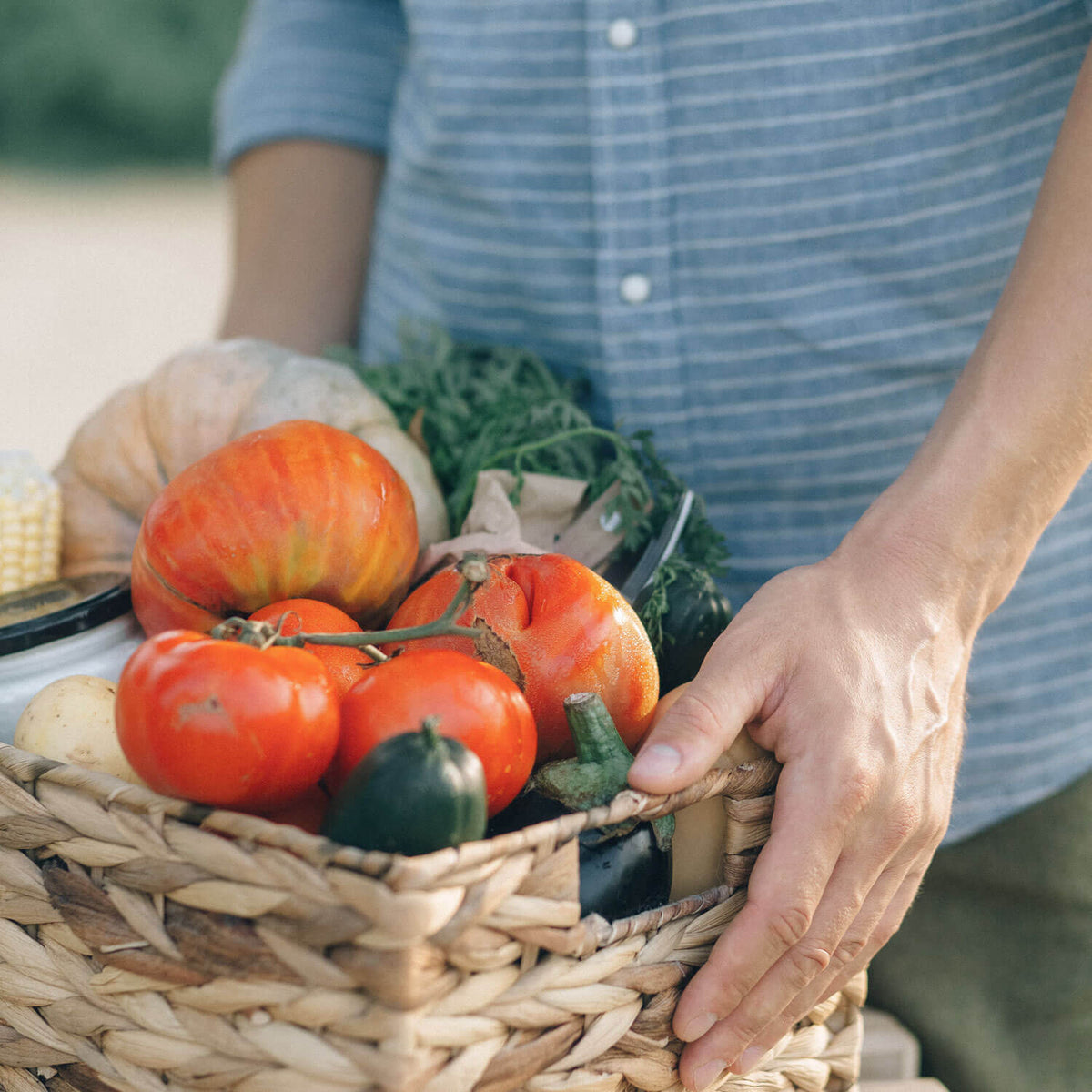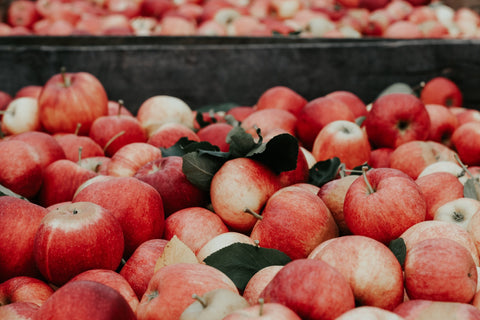
Farmers’ markets are more popular than ever these days. There are over 9,000 markets across the United States today and many of those markets reported their best year ever in 2020. So, we might not need to convince you to stop by your local farmers’ market. But just in case, we wanted to share some information about the importance of farmers’ markets and shopping seasonally.
Why is it important to shop seasonally?
Shopping seasonally is an important factor of sustainable agriculture because seasonal means local! If you’re eating a mango in the US in December, it probably didn’t come from anywhere nearby. No farmer can fight the seasons, so local farmers aren’t going to be growing off-season produce. Whatever market vendors are selling will be in season and therefore super fresh (and delicious!)
Eating seasonally is also good for your health. Seasonal food is more nutritious than food that is grown out of season because it is picked at peak ripeness only a short while before it makes its way to your table. Off-season food has to be picked early in order to ripen by the time it lands on grocery store shelves, reducing its overall nutrient content. Not to mention it’s not exactly natural to eat tropical fruit in winter if you don’t live in a tropical place! Your body tends to crave heartier foods in colder weather – so it’s great that potatoes are in season! Check out what’s in season in your area here.

What produce is in season in the fall in North America?
Fall is the season of the harvest; so much good produce comes up in autumn! You’ll probably be familiar with many fall crops like apples (hello, apple picking), potatoes, and pumpkin. But some fall produce might surprise you!
Here’s what is in season in the fall in North America:
- Apples
- Broccoli & Cauliflower
- Eggplant
- Garlic
- Onions
- Squash
- Potatoes
- Lettuce
- Kale
- Beets
- Pears
- Pumpkin
- And plenty more!

Why is it important to shop at farmers’ markets?
Farmers’ markets are one of the most sustainable ways to get your produce due to their farming practices and proximity. When you shop locally, the distance your food has to travel is significantly reduced. Consider the difference between a squash grown in your area versus one grown across the country: the industrially grown squash will have to be picked early, possibly sprayed with preservatives, and shipped across the country, all before it reaches the grocery store shelf. Whereas at a farmers’ market, you’re likely picking up a piece of produce harvested the day before! Food sold in retail stores travels an average of 1,000 miles – that’s a significant difference.
Local farmers typically use much more sustainable farming practices than industrial growers as well. Conventional agriculture uses considerable resources to grow at such a large scale, contributing to drought, pollution, and soil erosion. Farmers’ market produce is likely to be organic and/or pesticide-free.
To find a farmers’ market near you, search here.





